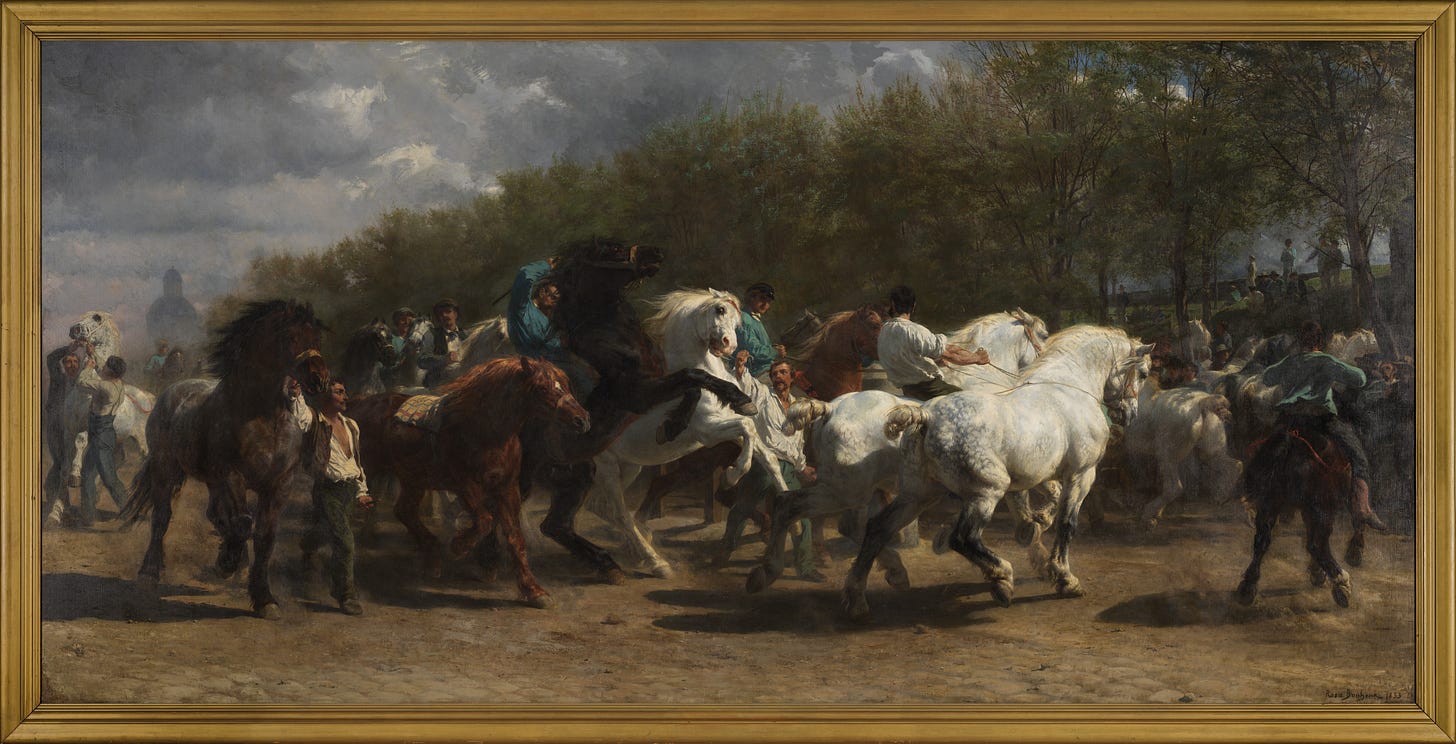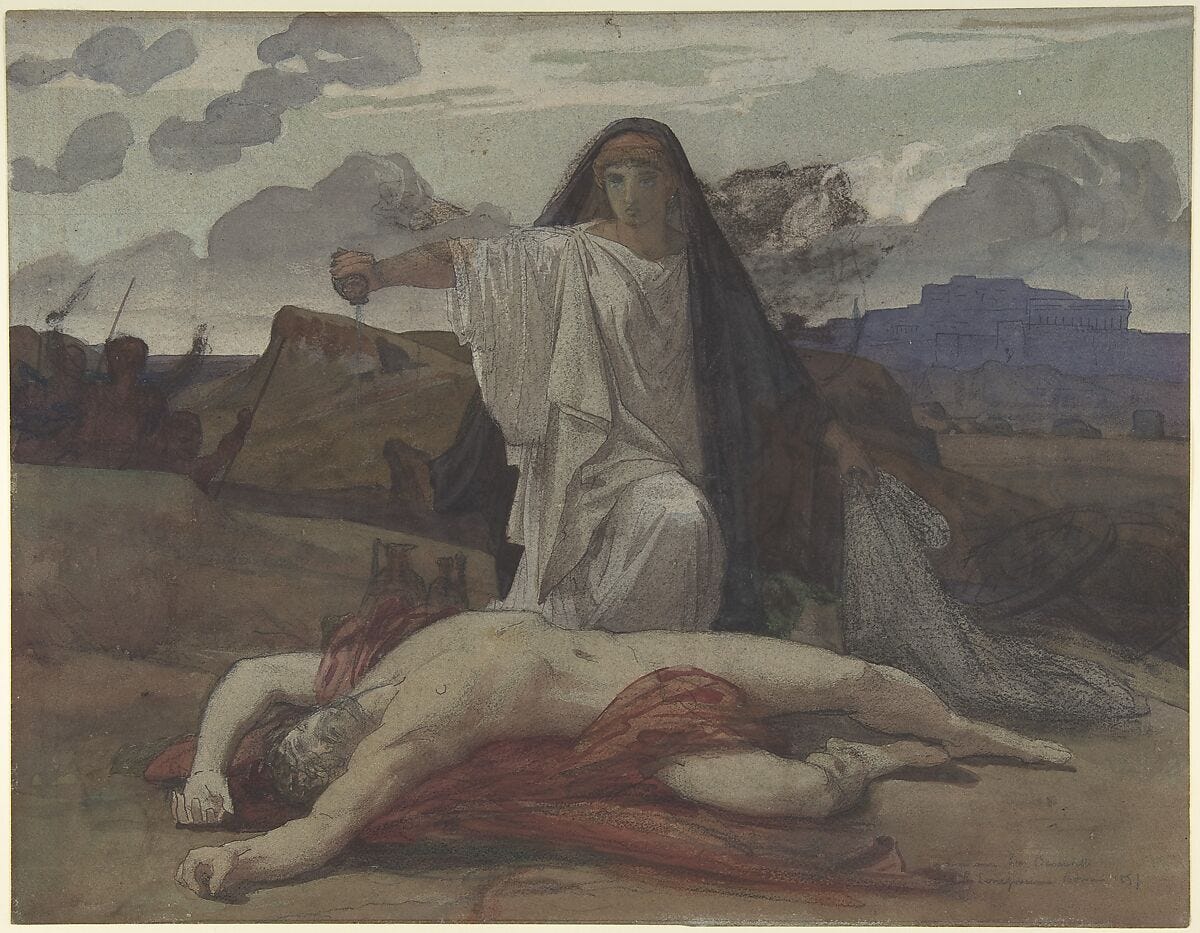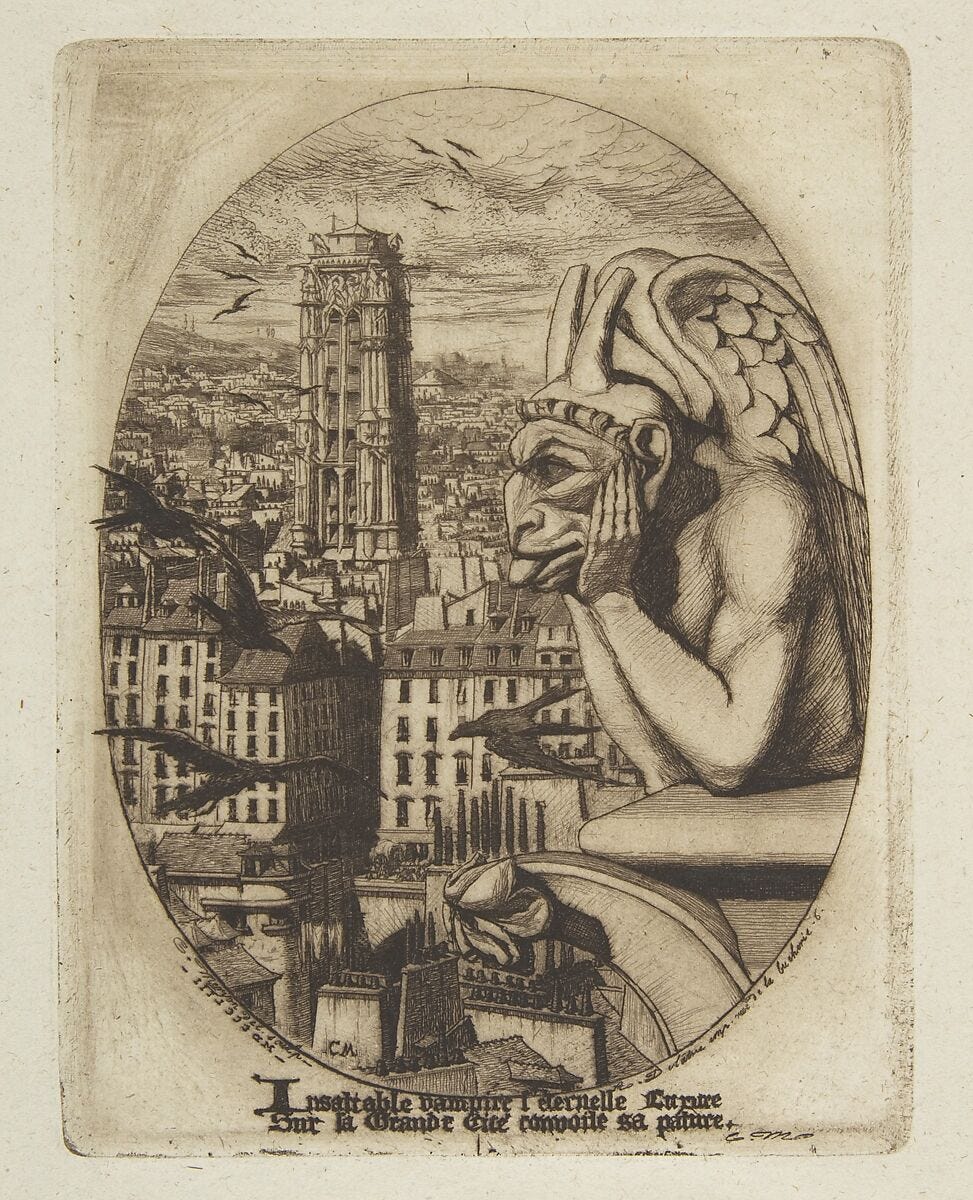Freedom is a Vampire Slayer
Some Thoughts On Understanding Freedom (and the things people say about it)
Overview
What follows was originally written in reply to this question. The point of the piece is to weave together various strands of thought together, while keeping them in a taut and polarizing tension with other ideas of what constitutes freedom in peoples thinking these days. In doing this I hope to provoke deeper thinking into what it means to be free. All enemies of Vampirism are welcome.
The chicken and egg problem, or “how truth is a prerequisite for freedom”
Friends, Romans, Countrymen! Gather around, gather around! Good on you for being interested in this question. It's near the heart of very important truths.

Truth is paramount over freedom, and this should be obvious. Why? Because you can't make any assertion about freedom one way or another that is meaningful if it isn't first a true thing to be saying. Truth is a prerequisite of freedom for this reason if not others (the smart kids in class will see this presents a dilemma, because all we're told anymore is that there is no such thing as truth, let alone moral truth! But we will get there).
What are values?
To start with, we should state what on earth a value is before we move on to freedom proper.
There are different kinds of values:
Aesthetics values are very far ranging, beauty is diverse and she is fond of trying on many different clothes (but she is not in the eye of the beholder, nor is she limitless, he who calls a bloody murder beautiful is a monster and wrong).
Another kind of value is exemplified by holding a correct belief about a state of affairs, such as the weather forecast being accurate. This sort of belief is a rational value.
The value-term freedom can be used in either of the above cases. We can replace the phrase far ranging in the first example with free, and likewise for the second case we know that we are free to think other than what the weather forecast has to say about how the weather will behave in the future!
But freedom in by far the most important sense (not that the other senses are not related), is the moral sense.
Freedom as a moral value shares some aspects of the first two senses gone over above: like freedom in reference to beauty, people are diverse and love to try many things in life and they should! Life is a banquet! (But notice even then some things shouldn't be eaten some things can hurt you).
Like freedom concerning belief about the weather, people are free to judge their situation in life amidst all the human uncertainty we have to contend with and call their own shot, about the way things really are, and the way things will be in the future.
But moral freedom is a value that has a distinct attribute, it concerns the good of human persons - and the world they live in - in direct relation to what human beings essentially are, and what human beings are meant to do.
Teleology
To describe the preceding paragraph - more or less - someone somewhere made this handy word, teleology from the Greek telos. To put it as succinctly as I can, it means the purpose of something. A doctors purpose is to help the sick, for example.
Freedom from and freedom too, or "there is no such thing as a coin with only one side"
Why are we talking about Greek you ask? Good question!
Recall our definition of freedom above, that freedom as a moral value is by far the most important value the word can signify.
Now here is a very important phrase I learned from somewhere I can't remember just now - but whoever said it thank you - all freedom from is a freedom too.
Recall how at the start I explained that Truth is the prerequisite of freedom? Well this is where that rubber meets the road of human life and not just abstract talk.
If we say correctly that it is true that human beings ought to be free of what is bad for them and goes against their essential nature and their purpose... then we must recognize the obvious parallel line of truth that travels besides the former and meets it in eternity! That freedom as a moral value is justified in a positive sense also, the sense of why human beings ought be free is not so they can do whatsoever they please, it is so they can do their level best to do what they ought to do.

In short to speak meaningfully (truthfully) of what is good and bad for an entity - be it a human being or a dining room chair - necessarily entails that you know something essential of what that entity is.
This grates against modern ears. Tough, modern ears are affixed to fool heads, just turn on news. Good and bad are not relative utilitarian fairy-tales we tell ourselves to assuage our meaningless consciences that evolution foisted on us without so much as a by-your-leave. Good and bad are grounded in the truth of what-ought-to-be-the-case.
What does all this mean in practical terms? It means that holes are in general bad for boats, they'll sink if you put them in them, and boats - even submarines - are not meant to go down and then not come back up again. So it is for human beings and and the rest of the world too.
Thomas Jefferson wrote that some of what is most essential for human flourishing are... Life, liberty, and the pursuit of happiness. And when he wrote that last word it is vital to understand that what he was referring to was what the Greeks called eudaimonia, which means the pursuit of ones happiness as it comes naturally from the growing-into of ones telos - ones ultimate purpose. It does not mean whatever makes you happy, if it feels good do it, or that anything goes because it's all relative.
Vampire "freedom"
Many people have been brought up to think of freedom as being synonymous with just exactly what it must not be synonymous with. With if it feels good do it, with whatever makes you happy.
Now there is some partial truth to both statements, and that is how they get past peoples defenses. Much as a vampire appears to be human right until he is disemboweling grandma (true story).
To put pragmatically why both sayings are insufficient, we can note that it might make a morbidly obese person feel absolutely euphoric to eat themselves into a nightmare, but that doesn't make it the pursuit of happiness (eudaimonia) that Jefferson and those clever Greek Sages were talking about. We must be on guard against Vampire knock-offs. They're only out to make us thralls.
And on that note, two of the most successful Vampire plots have been The Will to Power and The Social Contract..
The Will to Power
Nietzsche (whether he worked for them or was one I cannot say), decided that freedom as a moral value such as we talked about before, was an impossibility. He claimed this was the natural outcome of the death of God. I happen to think that reports of God's death have been drastically exaggerated by the propagandist, but we don't need to go there just yet. The simple and plain fact is that all people know that there is such a thing as right and wrong, and that even though the strong might choose to abuse a victim in any number of heinous ways, that does not change the math in their favor.
So much for The Will to Power. Nietzsche didn't have a coin with two sides, a coin with one side, or a coin at all. He was coin-less but thought himself the bank.
I agree with those who say he went insane as the final punctuation mark in his protest against Truth.
The Social Contract
The Social Contract does not go so far as Nietzsche to deny that Truth exist. But what it does do is try to reverse the formula above.
Recall that I explained that Truth is the prerequisite of freedom. Well, Social Contract theory claims that truth is nice and all, but freedom is unrelated to it.
And the equation just doesn't balance that way. At all.
Rousseau probably did the best job of explaining the hideous idea, when he wrote:
"Whoever refuses to obey the general will shall be constrained to do so by the whole body, which means nothing other than that he shall be forced to be free..."
Recall our discussion of the Greek insight into our being - telos. Rousseau here in this quote, denies that telos has any bearing on freedom. Instead, he ghoulishly decapitates the body of telos and stitches the general will to the bloody stump as a sort of Frankenstein monster.
Besides the fact that Rousseau was a barbarian in his personal life (hint hint), his idea that people must be forced to be free translates to people can do whatever the hell I say, because of course the general will would always agree with Rousseau wouldn't it? I mean he was so smart, right?
No.
Cicero: Vampire Slayer
The whole world - not just Europe - owes an intellectual debt to Roman civilizations crowning achievement. Far beyond roads, military tenacity, or aqueducts - Rome discovered the Ius Gentium (A Global commonality of all human beings, is moral knowledge sans some kind of disastrous defect).
Rome had extensive experience with diverse people groups who lived in nigh total isolation from all others. They made an effort to understand these peoples above and beyond what modern academic anthropologist typically attempt, in that their motivation was far greater. The success or failure of their armies, and their own lives were at stake in these encounters in foreign countries far from home.
And they noticed something, that there are fundamental laws that human beings the world over know and respect in virtue of their human nature (telos!).
This discovery was a vital part of their success, and to illustrate it in pragmatic terms we can think of examples of it....
No people praises the man who breaks ranks and runs away from a fight with no good reason.
No people praise parents who desert their young.
No people condemn self defense
etc.
To put it in a more powerful context, we can relate the story of Antigone:
Antigone...
Finds her brother murdered (body left for animals to mutilate).
Her brother was accused of treason.
The King commanded that his corpse be left to rot.
Antigone buries her brother anyway, compelled by her conscience.
She is brought before the King; can this confrontation between conscience and earthly power clarify the real nature of Nomos? (What is right living and why is it right?)
Antigone confronts her accuser, the King, arguing that the law that demands a sister to bury her dead brother, is more ancient than Kings. Antigone continues, saying, "if there would be Kings, their ought be the same allegiance shown them, as I show to my dead brother."

Recall the idea we spoke of earlier, that of will to power? This can be reformulated and stated as the idea that might makes right. But the story of Antigone shows how that cannot be so. Might cannot exist outside and apparent from right, anymore than a plane can take off without a runway! That is not to say the plane cannot fail to continue to respect right, which is when it ceases to fly and begins to fall with style.
No King or Government can stand or legitimate itself apart from a respect for moral truth. Including freedom and its moral value as the best means of permitting a decent citizenry to fulfill their purpose, their telos.
Checking Modernities Premise
John Locke was a skilled physician as I understand it, and he noted that:
"the madman reasons correctly from false premises."
Well he was on to something. Not all premises can reasonably explain the facts-on-the-ground. Value theory is couched in purpose and if there is no purpose, then there is no ultimate value to anything, or anyone. Not to any human life. But the fact-on-the-ground is that human beings are significant. No one is born without this innate understanding, like 2+2 = 4 or that up is up and down is down.
Find a creature that does not conform to this pattern, and the best explanation is not that sanity is not real, the best explanation is that the unfortunate creature is somehow deficient! Or too young, or injured, or drugged. But an adult mature human being, in virtue of being rational, will recognize certain precepts to be beyond challenge, certain truths to be self evident. Including moral truths that spring from innately knowing that the other has value in and of themselves.
Premises that cannot account for this state of affairs are the unreal, the problem, the blinders, the falsehoods. And yes, I mean atheism by and large. It has no answer to offer anyone in explanation of this common human experience, all it can do is try to feebly explain it all away and shut the door.
No. Non-options won’t do at all.
Conclusion, or "have you ever...."
I can already envision the objections, "Oh Gutenberg!", someone exclaims "It is a scAnDaL! How can you so ignorantly argue for the reality of what we can't see, taste, touch, or otherwise empirically verify?" the speaker comes up for air before plowing on, "what is this mumbo jumbo about innate knowledge that all people everywhere possess in virtue of their humanity, WHERE IS YOUR SCIENTIFIC STUDY!"
To all such comers I reply frankly that none of them have ever seen a straight line in the so called real world. Yet we all understand straightness. We all know what would happen if we ever tried to build a house denying that there is such a thing as that. Given that observation alone cannot account for this very applicable knowledge to the real world being available to us… whence comes it? I believe it is innate. And Chomsky for one argued effectively that it is, beyond any appeal I personally make to the notion that God made us that way as an explanation for the fact that innate knowledge is a part of who and what we are.
Freedom is predicated on truth. Not all knowledge is acquired via experience or sense perception. Morality is as true as anything else moderns have been conditioned to accept as true at face value, and is predicated on the existence of human nature and the reality of human purpose in a world that has intrinsic meaning.
Attempts to make freedom its own end, don’t work because freedom can’t exist apart from truth (recall the illustration of morbid obesity; no such person who can be called free by any adequate definition of the word). Likewise attempts to make freedom meaningful when we assert that there is no meaning in the world or to human beings, but only arbitrary utilitarian schemes and liberal limp-wristing… is lipstick on a pig.
Happily these are not the only two options available to us, rather, we can and should pursue the eudaimonia that Jefferson called to our attention before. Freedom isn’t limitless, limitless freedom would make the word synonymous with death and morbid obesity. Freedom is married to form, without that we would be ghost unable to touch or interact with reality or live our lives. With it, we are solid and real and able to grow into our shoes.
Solzhenitsyn describes it thus:
"After the Western ideal of unlimited freedom, after the Marxist concept of freedom as acceptance of the yoke of necessity—here is the true Christian definition of freedom. Freedom is self-restriction! Restriction of the self for the sake of others!”

If we believe in value at all that is. And if we don’t… then what is all the fuss about? There would be nothing to fuss over, but yet here we are in such a fuss.





